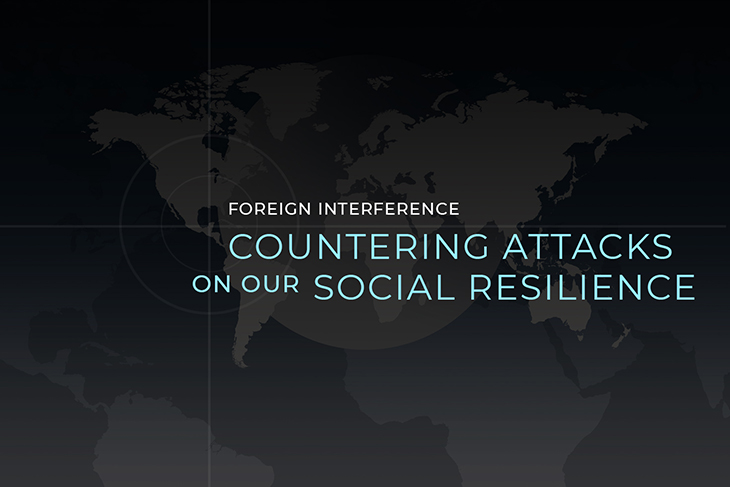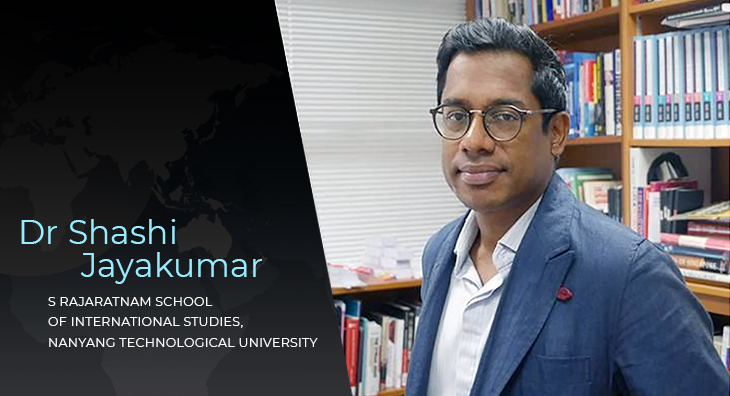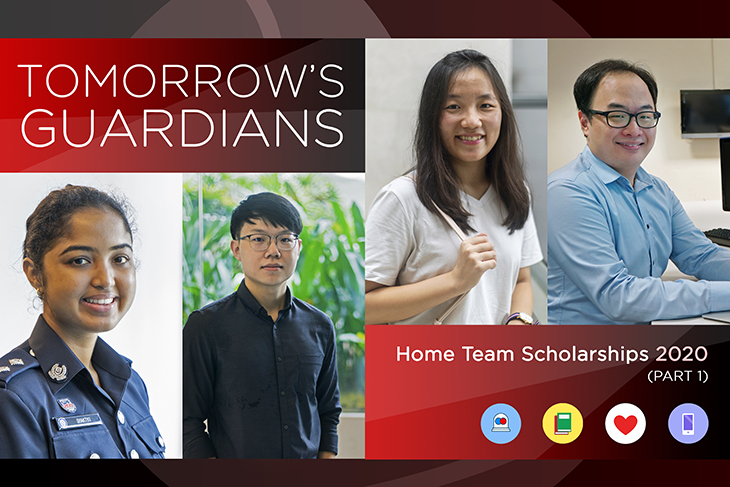
This month, the Ministry of Home Affairs introduced the Foreign Interference (Countermeasures) Bill for First Reading in Parliament. The Bill will strengthen our ability to prevent, detect and disrupt foreign interference in our domestic politics conducted through hostile information campaigns and the use of local proxies.
We spoke to Dr Shashi Jayakumar of Nanyang Technological University’s S Rajaratnam School of International Studies (RSIS) about the threat posed by foreign interference and how clandestine efforts have exploited social media to erode public trust and divide communities. This interview was conducted in 2019 and updated in September 2021.
 What are some of the tools that states use to engage in foreign interference?
What are some of the tools that states use to engage in foreign interference?
There’s an entire spectrum – hostile information campaigns; cyber-attacks; agents of influence; infiltrating media and non-governmental organisations; discrediting, demeaning or denigrating trusted institutions and individuals; and so on.
These tools have all been used in other countries. Examples from the wider world show that if foreign interference is left unchecked, it has a very deleterious impact on society. It softens the underbelly of a country; it weakens social resilience; it makes people uncertain even as to what the basic truths are.
Haven’t the social media companies tried to address foreign interference and online falsehoods by deleting fake accounts and banning certain people from their platforms?
Yes, this is certainly better than nothing. But you have to accept that this is going to lead those individuals to seek other platforms.
It would also be a mistake to say that these measures are sufficient. From a national security perspective, we know that those who engage in foreign interference, and who organise hostile information campaigns are always seeking to refine the elements of their game-plan. They know very well which asset in the suite of tools to operationalise, and when.
There’s already evidence to suggest that the methods they use now are much more refined than they were in the past. For example, in a May 2021 report by Facebook, the company noted that since 2017, it had identified and removed over 150 covert influence operations for violating its policies on coordinated inauthentic behaviour. However, there has been a shift to smaller, more targeted operations that are harder to detect.
So there’s an “arms race” between those who engage in aggressive actions (including hostile information campaigns) and the social media companies, and governments trying to defend themselves clearly have to be invested in this process.
To their credit, the social media companies have come a substantial way and acknowledged that their own community standards are not enough, and that there’s a need for some sort of governmental regulation.
Do you think young people are aware of the threat posed by foreign interference and are able to recognise it? What countermeasures are there?
There’s an overlap between this space and the other field that I study, radicalisation. Cognitively, the echo chambers and filter bubbles are similar, and we’ve found that it’s very cost- and time-intensive to bring people out of them once they have entered.
Why not try a much earlier intervention, even before people fall into the at-risk group? Think about the good work that could be done in terms of media literacy, cyber-wellness, cyber-hygiene and critical thinking.
There’s also research which shows that face-to-face discourse can have an ameliorative effect. We need to get together more and talk about issues like healthcare, the state of politics in Singapore, public transport and so on. At the end of the day, I may not agree with you, but I have to recognise that you hold your views closely, and that they are reasonable. This forces us out of a black-and-white mindset.
We can also encourage online efforts which use the skills and energy of young people. For example, groups like StopThinkConnect and the Baltic Elves are loose, unforced coalitions with specific media literacy skills. It’s important for us to plant the seeds of such movements and allow them to sprout.
We’ve become much more atomised as a society; much more individualistic. Social media is partly responsible for this, and we’ve already paid a heavy price. We need more unforced, natural mechanisms to bring people together for dialogues or townhalls.
This is about discourse, but it’s also about preserving the commons – what we all as Singaporeans subscribe to. Maintaining this fabric is difficult but not impossible.
Read Part 1 of this interview:
An Old Threat in a New Form
Dr Shashi Jayakumar is the Head of RSIS’ Centre of Excellence for National Security. His research interests include extremism, social resilience, cybersecurity and homeland defence.
First Reading of the Foreign Interference (Countermeasures) Bill
The Ministry of Home Affairs introduced the Foreign Interference (Countermeasures) Bill for First Reading in Parliament on 13 September 2021. The Bill will strengthen our ability to prevent, detect and disrupt foreign interference in our domestic politics conducted through hostile information campaigns and the use of local proxies.
Read the Press Release on the Bill.
-04-(1).jpg?sfvrsn=c729add5_1)
Further Reading
Threat Report: The State of Influence Operations 2017–2020 Facebook, 26 May 2021
“Offensive Cyber” and Espionage: Dirty Secrets No One Talks AboutDr Shashi Jayakumar, RSIS, 4 January 2021
Disinformation and Fake NewsDr Shashi Jayakumar, Mr Benjamin Ang and Ms Nur Diyanah Binte Anwar (Editors), RSIS, 18 November 2020
Google and Twitter Vow to Block Voting MisinformationBBC News: Business, 11 September 2020
Countermeasures Against Foreign InterferenceMr Muhammad Faizal Bin Abdul Rahman, Dr Gulizar Haciyakupoglu, Ms Jennifer Yang Hui, Ms Dymples Leong, Ms Teo Yi-Ling and Mr Benjamin Ang, RSIS, 17 April 2020
Foreign Interference in Domestic Politics: A National Security PerspectiveMr Damien D Cheong, Dr Stephanie Neubronner and Dr Kumar Ramakrishna, RSIS, 9 April 2020
Cases of Foreign Interference In AsiaMr Muhammad Faizal Bin Abdul Rahman, Dr Gulizar Haciyakupoglu, Mr Benjamin Ang, Ms Dymples Leong, Ms Jennifer Yang Hui and Ms Teo Yi-Ling, RSIS, 26 March 2020
RSIS Conference on Foreign Interference Tactics and Countermeasures: Speech by Mr K Shanmugam, Minister for Home Affairs and Minister for Law25 September 2019
Why We Believe Fake NewsBBC News: Future, 9 September 2019
European Elections: How Disinformation Spread in Facebook GroupsBBC News: Trending, 30 May 2019
Is Social Media Killing Elections?BBC News: The Real Story, 26 April 2019
DRUMS: Distortions, Rumours, Untruths, Misinformation and SmearsDr Norman Vasu, Mr Benjamin Ang and Dr Shashi Jayakumar (Editors), World Scientific Press, 10 January 2019
Elections Integrity in Fake News Era: Who Protects, and How?Dr Shashi Jayakumar, RSIS, 29 November 2018
Written Representation to the Parliamentary Select Committee on Deliberate Online FalsehoodsDr Shashi Jayakumar, 27 February 2018
Inside the Russian Troll Factory: Zombie Troops and a Breakneck Pace The New York Times, 18 February 2018



-04-(1).jpg?sfvrsn=c729add5_1)

